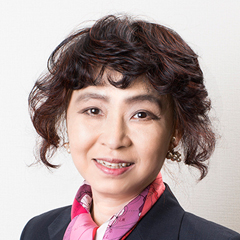Strict requirements for transgender people to change their registered gender
The population ratio of LGBTQ people is not small at all. It is increasing little by little in each survey in Japan, and according to the 2018 survey by Dentsu, it was 8.9%. It is also assumed to be approximately 8% globally. The term LGBTQ represents sexual minorities, among which LGB is related to sexual orientation and T is related to gender identity. Q includes various meanings such as “Questioning.” In particular, the issue of gender identity that transgenders (T) have affects exactly how the person lives. Despite this, in Japan, individual dignity and happiness have been violated because of insufficient legal revision or legislation.
It was 2003 when a law was enacted in Japan to allow transgenders to change their registered gender. Considering how Europe has solved LGBTQ issues, especially same-sex relationship issues, it was a rather quick action. This law called the Act on Special Cases in Handling Gender Status for Persons with Gender Identity Disorder (“Act on Special Cases”) allows gender change based on a family court ruling by fulfilling five requirements and obtaining certificates from two medical doctors. However, these five requirements are extremely strict.
Firstly, the person is an adult. Secondly, the person is not currently married. Thirdly, the person currently has no child who is a minor. Fourthly, the person has no reproductive glands or whose reproductive glands have permanently lost function. Fifthly, the person appears to be the opposite gender.
Although the first requirement about age was lowered by two years by the revision of the Civil Code in 2018, critics say that the age of 18, by which time secondary sexual characteristics have developed, is too late. The second and third requirements that the person is unmarried and has no underage children are based on the viewpoints of the prevention of the disruption of family order as well as the welfare of the child. The fifth requirement about appearance is grounded on the confusion of people when the appearance of the person remains unchanged even after their reproductive glands were removed, which was discussed as a so-called public bath matter.
The fourth requirement about the removal of reproductive glands attracted attention when the Supreme Court ruled in October 2023 that it was unconstitutional to require surgery. It had once been declared constitutional in 2019, when judges issued a supporting opinion that surgery may bring enormous bodily harm and is likely to infringe on “physical freedom” under the Constitution. The accumulation of such views on human rights may have led to the unconstitutional judgment four years later.
The Supreme Court declared the third requirement that the person has no underage children constitutional in November 2021, yet there was one judge who was against it, arguing it was unconstitutional. The judge found this requirement irrational and unconstitutional, violating Article 13 of the Constitution as a person has the right to maintain their identity without being placed on a legal status different from the true state of their gender, regardless of being a parent of a child or not. Although this was the opinion of a single judge among the five of them in a petty bench, this respect for individuals is regarded to have contributed to the unconstitutional judgment on reproductive glands in 2023.
These requirements also existed in Europe at first. There was justification similar to that in Japan: it is better when the person reaches a somewhat competent age because they cannot go back to the original state after surgery without careful consideration; it is necessary to prevent the bemusement of the public; and it is needed to protect children in the family. However, they have been abolished one after another over the last decade or two. The idea that it is wrong to inhibit a person from living as the gender that they think they are is the European standard now.
Lawsuit over separate family names related to legal gender change of transgenders
The Act on Special Cases obligates that the person is not married as the second requirement for gender change. It is said that, if this requirement is removed, same-sex marriage, which is not approved in Japan, will be formed. As shown above, the issues of the gender change of transgenders and same-sex marriage overlap in terms of “marriage” and “families.”
An important legal precedent in relation to these issues is the judgment of the Supreme Court in 2015 that declared it constitutional that separate family names are not approved. In this judgment, the Supreme Court provided its first detailed interpretation of the significance of Article 24, Paragraphs 1 and 2 of the Constitution, which stipulates freedom of marriage and families.
The Supreme Court first explained that the freedom of marriage under Article 24, Paragraph 1 is premised on the system and is not an individual right, and that the Diet has sole discretion on the legislation and details thereof primarily. The following part is noteworthy as it said that Paragraph 2 of the said article provides “requirements and guidelines” stating laws on families and marriage should be based on individual dignity and the equality of the sexes, which marks the limits of the discretion of the Diet.
The first content of these “requirements and guidelines” is to respect obvious constitutional rights as well as moral interests that are not exactly rights. The moral interests here also include the identity of transgenders mentioned above. It is significant that the Supreme Court clearly mentioned moral interests.
The second is to ensure that the substantive equality of the sexes is maintained, and the third is to ensure that details of the marriage system will not unfairly restrict marrying itself as a matter of practice. If transgender people are not allowed to change their gender as long as they are married, they will be forced to weigh marriage and gender change, which is considered to be an unfair restriction on freedom of marriage in effect. Although the Act on Special Cases is not directly related to marriage, what the Supreme Court said was wonderful.
Nevertheless, this judgment has its limits. The Supreme Court is only concerned with respect for and equality of individuals of the “sexes” in marriage and families. Unless freedom of marriage covers the freedom of the sexes (a man and a woman) as well as that of the parties regardless of sex, the issue of same-sex marriage will not be solved in essence, and the requirement for legal gender change of transgenders, stipulating that the person is not married, will remain as a restriction. We are making progress, yet we are only halfway through.
From the standpoint of the Supreme Court shown in the judgment on separate family names, freedom of marriage is regarded as freedom in the marriage system. In other words, it is not a right, but institutional freedom. Considering that marriage is a necessary right for the purpose of finding happiness, it is wrong not to make the system consistent with the right. The idea of giving priority to the system instead of the right has faced criticism from various quarters.
Develop a society where everyone can live in ways they like without the pain of losing something
I believe that it is now needed to develop legal systems to deal with same-sex marriage as an issue of human rights.
In 1989, Denmark became the first country in the world to allow nearly the same rights as marriage by enacting the “Act on Registered Partnerships.” In 1999, France established a partnership system called “PACS,” equivalent to marriage between the sexes or between individuals of the same sex. In 2001, the Netherlands allowed same-sex marriage, legally recognizing the family, and in 2017, Germany enacted an act on same-sex marriage. So far, 36 countries and regions around the world have established some kind of laws about it.
There is no such national law in Japan. At a local government level, in 2015, Shibuya City and Setagaya City in Tokyo established a “partnership system,” where the municipalities recognize same-sex couples as having a relationship equivalent to marriage and issue certificates to them. It is encouraging to know that over 380 municipalities have now established the system, which covers more than 75% of the population of Japan. However, such a system by municipalities also has the restriction that it must be “within the scope of the law” (Article 94 of the Constitution), which impedes the system from dealing with family registers in a way of violating the law, and thus it cannot provide exactly the same right as marriage.
Nevertheless, as it is true that creating a subsystem such as a partnership system will provide openness in addressing issues and contribute to the protection of the human rights of those who have trouble in the current legal system, I believe that we all consider the promotion of its institutionalization to make it widespread.
In any situation, including the issue of gender change, we do not want to lose something in return in order to live happily with someone we love. The ideal way of life for us is that we live in ways we like without the pain of losing something. Expanding protection in the subsystem to gradually lead to legislation will be a path toward respect for each individual.
Publishers have included LGBTQ-conscious descriptions in the Ethics and Health and Physical Education textbooks to be used in elementary and lower secondary schools from FY2024. There is a good chance that, in the future, children will have a deeper understanding of this issue than adults. We expect that considerate children who understand the existence of diverse people in society will become adults, which will make the whole of society better.
* The information contained herein is current as of February 2024.
* The contents of articles on Meiji.net are based on the personal ideas and opinions of the author and do not indicate the official opinion of Meiji University.
* I work to achieve SDGs related to the educational and research themes that I am currently engaged in.
Information noted in the articles and videos, such as positions and affiliations, are current at the time of production.


